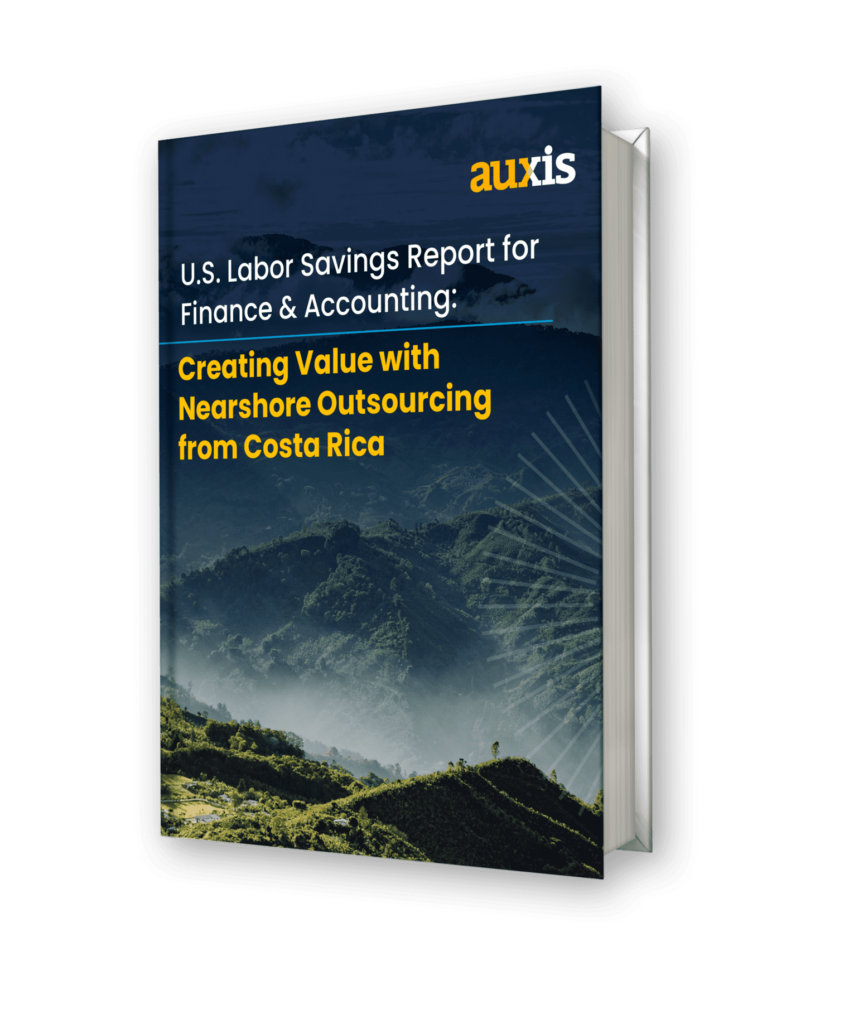FAO outsourcing cuts costs, improves efficiencies, and sharpens the focus of finance teams.
No matter their size, the most successful businesses share one common trait: a laser-beam focus on their core competencies.
Back office finance and accounting operations – while important – often distract from the critical, high-value work that drives growth and offers strategic insight to a business. Finance Departments will always be responsible for low-value tasks like paying vendors, billing customers, and closing the books on a monthly basis. But this transactional work consumes too much of a finance team’s energy and stops it from becoming the true business partner the company needs.
Building a scalable, efficient, business-focused Finance & Accounting Department sits high on most C-suite agendas. Outsourcing back office operations to an exceptional shared services center enables finance teams to focus their talents and value on the most important work, while maintaining the service level their business demands and significantly cutting internal costs.
It’s a strategy that’s sweeping across many sectors: In a recent KPMG study, businesses from all industries reported that they now manage 83 percent of their finance and accounting functions under a shared services or outsourcing model – and nearly 60 percent said they are eager to increase their reliance on BPO.
Here are five signs that your Finance & Accounting Department could benefit from outsourcing its back office operations:
1. You can’t focus on strategic decisions because you’re overloaded with back office work.
The average Finance Department spends a whopping 75 percent of its time on non-value added tasks – and that’s a conservative number. Even CFOs and Finance Executives can’t avoid getting sucked into back office issues, cleaning up mistakes and dealing with complaints from vendors whose invoices weren’t paid. If the most talented members of your team are spending the majority of their week on mundane work that simply “keeps the lights on,” you’re using your time and talent inefficiently. Even worse, as today’s tight labor market makes it challenging to recruit and retain skilled professionals, it’s unlikely your top talent feels engaged and will stick around for long. FAO outsourcing frees up your finance team from daily chores and allows them to focus on more strategic, revenue-generating activities.
2. You struggle to hire specialized talent.
With unemployment levels of 1.6 percent for accountants and 2.1 percent for accounting and auditing clerks, it’s hardly a surprise that 90 percent of Finance Executives say they struggle to find qualified staff to fill roles. Many companies are forced to ask employees to perform functions they don’t specialize in, increasing the chance of errors and employee dissatisfaction.
Outsourcing gives businesses access to the skilled resources that are increasingly difficult to hire in the U.S. Partnering with an experienced provider gives middle-market companies a particular advantage, enabling them to tap into a pool of expert workers equivalent to the ones Fortune 500 companies use in their own shared services centers, without the burden of opening a facility. Nearshoring to a highly Americanized country such as Costa Rica eliminates many of the issues that impact the success of Asia-based offshoring models, which can face cultural, language, time zone, and geographic barriers.
Costa Rica gives businesses access to highly educated, English-proficient resources exceptionally qualified to perform finance and accounting work. Consistently ranked as the leading nearshoring city in Latin America, workers in San Jose, Costa Rica, make FAO outsourcing seamless because they’re familiar with U.S. GAAP and the pace and demands of closing the books for the 350 multinational companies based in the area.
3. You must improve your bottom line.
As pressure mounts on CFOs to reduce business costs, today’s tight labor market is forcing them to significantly overpay employees for work that adds little value. Outsourcing enables your business to achieve the same benefits and functions you receive from an in-house department at a fraction of the price. Not only does it significantly slash salary expenses, but also reduces other costs your business incurs for full- or part-time employees like overhead, benefits, taxes, and training. And there’s an added bonus: Most companies find that the quality of their back office work improves when it’s performed by outsourced workers grateful and proud of the opportunity, instead of U.S. employees who often believe transactional work is beneath them.
By nearshoring finance and accounting positions from New York to Costa Rica, for instance, businesses typically achieve average labor savings of between 42 and 51 percent – and productivity efficiencies that translate into savings of another 10 to 20 percent. Labor costs alone deliver a savings of $44,000 to $63,000 per head. Think about how many employees currently perform non-value activities in your department and you can begin to understand the potential impact to your company’s bottom line.
4. Your back office operations are woefully outdated.
Modern back offices help organizations stay relevant and compete in today’s global business environment. They are focused on the future, they make decisions based on analytical insights, and they can implement operational changes faster and more effectively than traditional back office organizations.
But business cultures that are resistant to change can make it difficult for Finance & Accounting Departments to transition their outdated, clunky operations into this new breed of strategic, agile business partners. Not only are back office operations often decentralized, with too many people performing the same tasks, but some still rely on inefficient paper-based processes. Many are also so overloaded with transactional tasks that they lack the bandwidth to invest in process re-engineering or productivity improvement initiatives.
Outsourcing makes it easy for Finance Departments to achieve a holistic transformation of their operating model, offering economies of scale and instant access to process improvements and automation tools like Artificial Intelligence (AI) and Robotics Process Automation (RPA) that make their back office more efficient. The implementation of RPA alone can generate productivity gains of more than 40 percent in targeted areas. Outsourcing enables you to modernize your back office without incurring prohibitive infrastructure or technology costs.
5. Your department is bloated and inefficient.
Too many Finance Departments have grown inefficiently over the years, with duplicated jobs at different locations and too many people in expensive managerial roles. Centralizing your operations with an outsourcing provider makes it easy for Finance Executives to realign their span of control with industry best practices. Not only can they relevel their organization to the proper ratio of managerial vs. non-managerial roles, but outsourcing enables them to cycle resources up and down as their needs change. This unique ability to always keep your back office “right-sized” makes it flexible and scalable, and offers significant cost and operational efficiencies.
Outsourcing to the right partner can help Finance & Accounting Departments sharpen their focus, boost efficiencies, cut costs, and shore up skills gaps in their teams. But how do CFOs and Finance Executives determine if it’s the right solution for their organization? Carefully considering if your business is experiencing any of these warning signs can help you determine if outsourcing is the key to evolving your finance team beyond number crunching into a strategic, value-creating business partner.
U.S. Labor Savings Report for Finance & Accounting: Creating Value with Nearshore Outsourcing from Costa Rica


